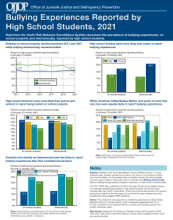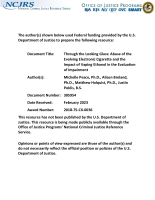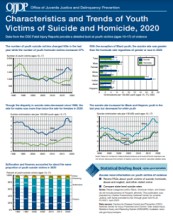Centers for Disease Control (CDC)
Graphic Description – Medicolegal Death Investigation Frequently Used Data Elements For Toxicology And Seized Drugs
White Paper – Forensic Community Drug Database Conceptualization
Graphic Description – Medicolegal Death Investigation Case Specific Frequently Used Data Elements And Chart
Graphic Description – Frequently Used Data Elements Collection Systems And Primary Documentation
Jealousy as a Correlate of Intimate Partner Homicide-Suicide versus Homicide-Only Cases: National Violent Death Reporting System, 2016-2020
Cross-sectional Study of Loss of Life Expectancy at Different Ages Related to Firearm Deaths Among Black And White Americans
A Data-Informed Response to Emerging Drugs
The emerging drug crisis in the U.S. touches both criminal justice and public health, and experts from both fields came together at NIJ’s 2023 National Research Conference to discuss strategies and tools to fight this problem. Dr. Frances Scott, NIJ scientist and program manager, continues the conference discussion with two fellow panelists: Ciena Bayard, the Method Development and Validation Program Manager for D.C. Office of the Chief Medical Examiner, and Haley Greene, the Deputy Epidemiologist for the Central Region for the Virginia Department of Health. Read the transcript.
Bullying Experiences Reported by High School Students, 2021
Meeting National Safety Council Recommendations: Accurate Rapid Tests and Laboratory Confirmation Procedures for Fentanyl and Prevalent Opioids in Oral Fluid
Opening Remarks by the Honorable James K. Stewart, Director, National Institute of Justice Before the Drug Use Forecasting Advisory Group
Through the Looking Glass: Abuse of the Evolving Electronic Cigarette and the Impact of Vaping Ethanol in the Evaluation of Impairment
Using Administrative and Survey Data to Evaluate the Impact of Changing Marijuana Laws and Policies on Marijuana Use, Treatment Admissions for Marijuana, and Mortality Related to Marijuana and Other Drug Use
Gender-Based Violence and the Latinx Community
See the YouTube Terms of Service and Google Privacy Policy
Tribal Crime, Justice, and Safety, Part 1
Research indicates that Native American persons experience crime victimization at higher rates than non-Native people. Furthermore, the unique position of American Indian and Alaska Native tribes as both sovereign nations and domestic dependents of the U.S. creates jurisdictional complexities in responding to crime, justice, and safety. Senior social and behavioral scientist Christine (Tina) Crossland discusses NIJ’s research on these topics, especially on the prevention of violence towards American Indians and Alaska Natives. Communications Assistant Stacy Lee Reynolds hosts.






